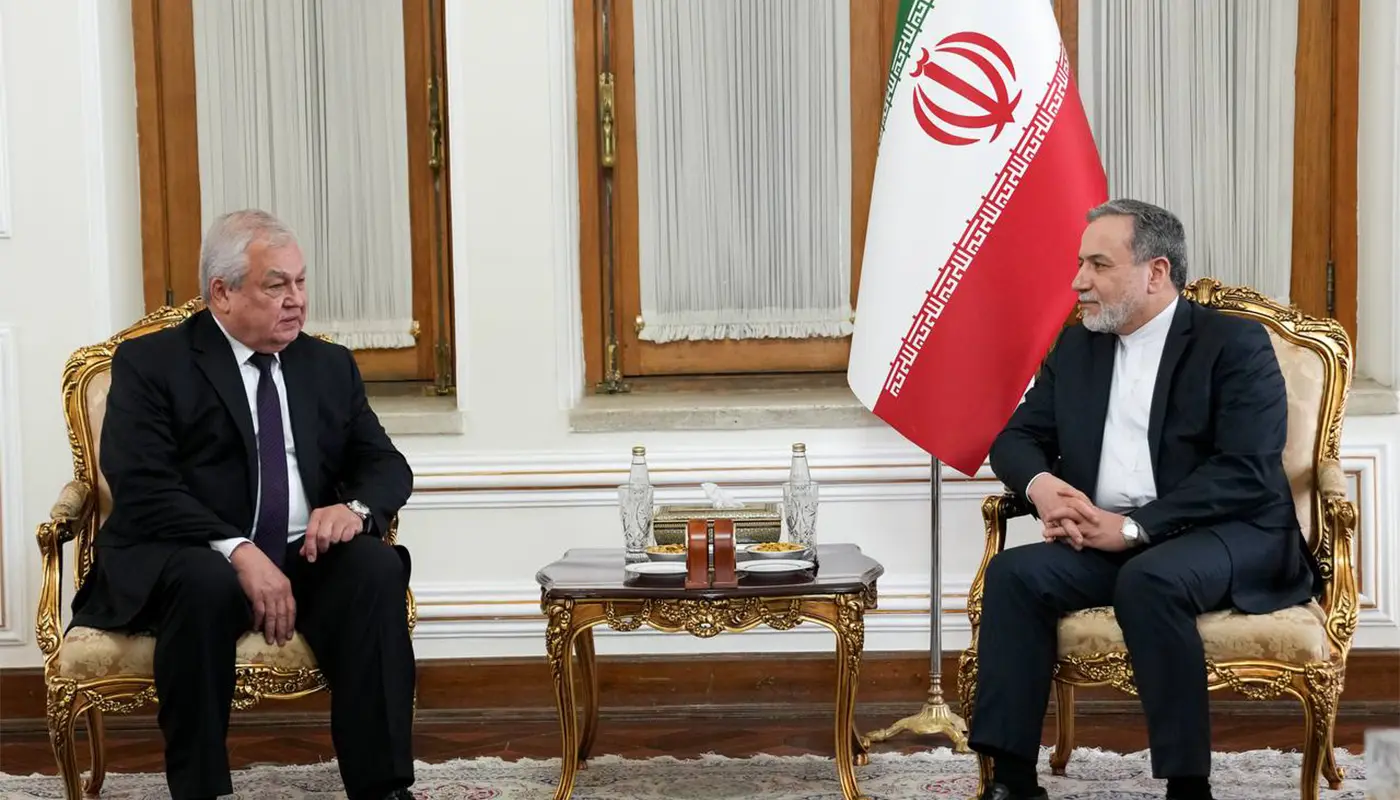Russia is moving to further solidify its strategic bonds with both Iran and Syria as the Middle East power-balance undergoes renewed realignment. The Kremlin announced over the weekend that Moscow is “definitely ready to expand cooperation with Iran in all areas”.
The statement came after a meeting in Tehran between the Russian President’s special envoy for Syria, Alexander Lavrentiev, and Iran’s Foreign Minister Abbas Araqchi.
They reaffirmed “strategic and expanding” relations and pledged closer coordination on regional issues, including Syria’s future.
At the same time, Russia has taken steps to maintain and recalibrate its relationship with its longstanding ally, Syria. In mid-October, Syrian President Ahmed al‑Sharaa visited Moscow for talks with Russian President Vladimir Putin, the first such visit since the fall of the previous regime in Syria.
During that visit, al-Sharaa affirmed that Syria would “recognise and adhere to the existing agreements” with Russia signalling Moscow would be allowed to retain its strategic military facilities in Syria, crucially the naval base at Tartus naval base and the air base at Khmeimim Air Base.
Why it matters
Russia’s pivot towards deeper engagement with Iran comes amid mounting international sanctions and diplomatic isolation from the West.
Analysts note that the re-imposition of so-called “snap-back” UN sanctions against Iran has accelerated Tehran’s eastward turn, making Moscow a key partner in its efforts to circumvent Western pressure.
In parallel, Russia’s posture in Syria is being recalibrated. After years of heavy intervention to prop up the former regime, Moscow is now negotiating a more contractual and interest-driven relationship with Damascus.
A recent assessment calls Russia’s new position in Syria one of “recovery and adaptation”, rather than returning to its former dominance.
For Syria, the outreach signals an attempt to diversify its foreign partnerships after a dramatic internal transformation.
Analysts suggest Damascus is seeking to rebuild its economy, re-engage with regional powers, and leverage Moscow’s presence as one among several strategic players rather than the sole sponsor.
Regional implications and obstacles
The evolving Russia-Iran-Syria triangle carries significant regional ramifications. With Syria now under the leadership of al-Sharaa, who once led rebel forces, the previous alignment under the former regime is being revised.
Russia’s willingness to engage reflects its ambition to maintain a foothold in the Eastern Mediterranean amid shifting alliances.
Yet, obstacles remain. Syrian officials have publicly set conditions for Russia’s continued presence, including reparations for damage caused during past military operations, accountability for civilian harm, and new contractual terms for military base access.
Meanwhile, despite its closer alignment with Russia, Iran remains cautious of Moscow’s ties with other regional actors, including Israel and the Gulf states, which Tehran views as strategic competitors.
A think-tank commentary notes that while Moscow and Tehran share an anti-Western orientation, their long-term goals are not fully aligned.
Conclusion
The latest developments suggest Russia is deliberately strengthening its ties with Iran and Syria as part of a broader strategy to remain relevant in the Middle East, despite the ongoing war in Ukraine and Western sanctions.
Tehran and Damascus, for their part, are embracing a more pragmatic foreign-policy posture, seeking Moscow’s support while hedging their relationships with other regional powers.
As these alignments shift, the future of Russia’s military presence in Syria and its role in the Iran-Russia partnership will remain watch points for policymakers in the region and beyond.
Sources: Reuters, Tasnim News Agency, Ministry of Foreign Affairs Iran






